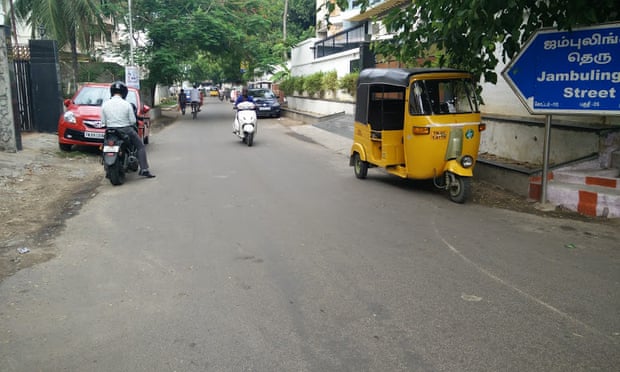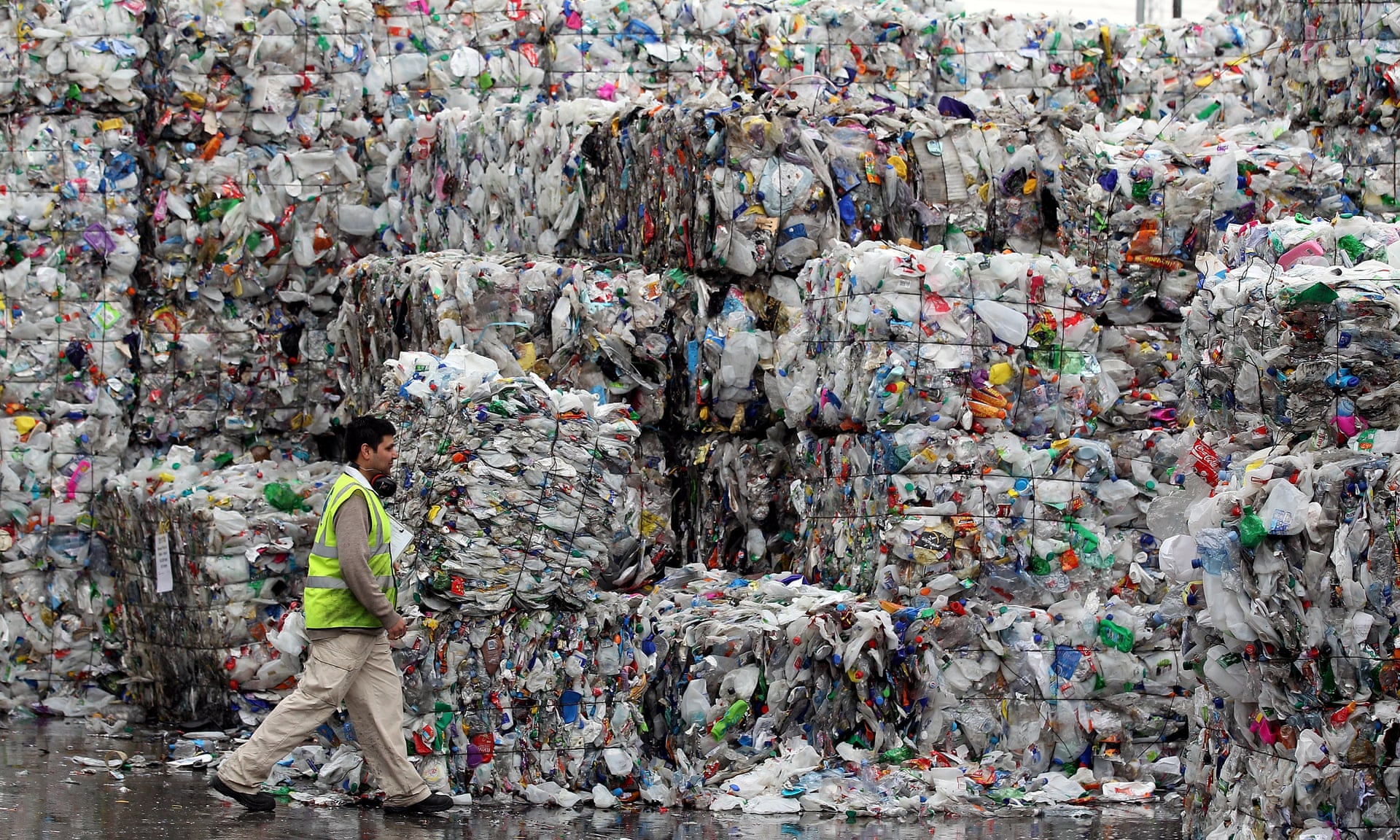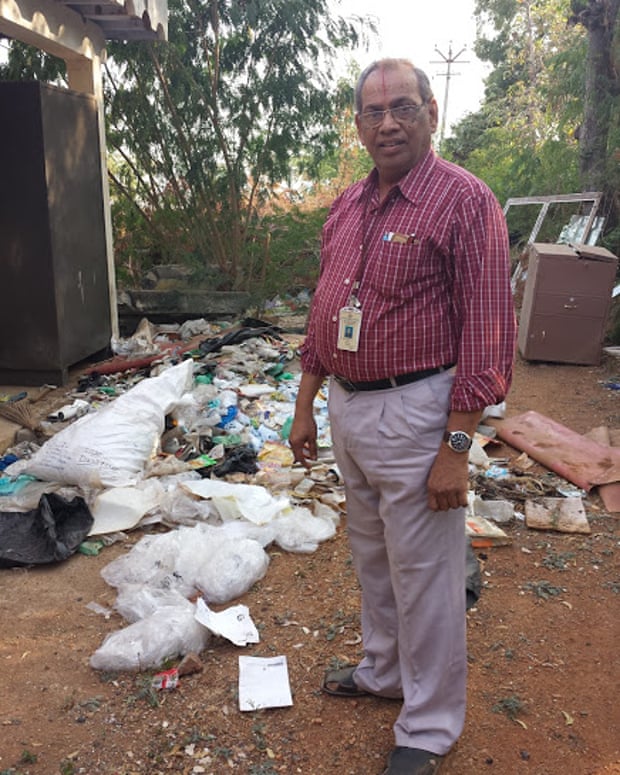
In India, roads made from shredded plastic are proving a popular solution to tackling waste and extreme weather
Jambulingam Street, Chennai, is a local legend. The tar road in the bustling Nungambakkam area has weathered a major flood, several monsoons, recurring heat waves and a steady stream of cars, trucks and auto rickshaws without showing the usual signs of wear and tear. Built in 2002, it has not developed the mosaic of cracks, potholes or craters that typically make their appearance after it rains. Holding the road together is an unremarkable material: a cheap, polymer glue made from shredded waste plastic... Plastic shopping bags, plastic packaging, bottles, jars and other food containers.
Jambulingam Street was one of India’s first plastic roads . The environmentally conscious approach to road construction was developed in India around 15 years ago in response to the growing problem of plastic litter. As time wore on, polymer roads proved to be surprisingly durable, winning support among scientists and policymakers in India as well as neighboring countries like Bhutan. “The plastic tar roads have not developed any potholes, rutting, raveling or edge flaw, even though these roads are more than four years of age,” observed an early performance report by India’s Central Pollution Control Board. Today, there are more than 21,000 miles of plastic road in India. Most are rural roads, but a small number have also been built in cities such as Chennai and Mumbai.

Adding flexible materials to strengthen tar roads is not a new idea. Commercially made polymer-modified asphalts first became popular in the 1970s in Europe. Now, North America claims 35% of the global market. Modified asphalts are made from virgin polymers and sometimes crumb rubber (ground tires). They are highly versatile. They are also expensive. Polymer roads in the US are made with asphalt that comes pre-mixed with a high grade polymer.
The plastic tar roads of India are a frugal invention, made with a discarded, low-grade polymer. Every kilometer of this kind of road uses the equivalent of 1 million plastic bags, saving around one ton of asphalt and costing roughly 8% less than a conventional road. Dr R Vasudevan, a chemistry professor and dean at the Thiagarajar College of Engineering in Madurai, came up with the idea through trial and error, sprinkling shredded plastic waste over hot gravel and coating the stones in a thin film of plastic. He then added the plastic-coated stones to molten tar, or asphalt. Plastic and tar bond well together because both are petroleum products. The process was patented in 2006. It will soon be used on major roads and hiways and is expected to reduce construction costs by 50%.
In India, plastic roads serve as a ready-made landfill for a certain kind of ubiquitous urban trash. Flimsy, single-use items like shopping bags and bubble packaging are the ideal raw material, difficult to recycle, they are a menace, hogging space in garbage dumps, clogging city drains and even poisoning the air. Delhi’s air, in particular, has been called a “toxic pollutant punchbowl” partly due to contaminants from plastic-fueled street bonfires.
Last November, the Indian government announced that plastic roads would be the default method of construction for most city streets, part of a multibillion-dollar overhaul of the country’s roads and highways. Urban areas with more than 500,000 people are now required to construct roads using waste plastic. The project even has the blessing of India’s prime minister, Narendra Modi, who has made “Clean India” a kind of personal crusade.
India’s road upgrade is long overdue. A recent road safety report by the World Health Organization (WHO) found that 17% of the world’s traffic fatalities occur in India, with crumbling roads partly responsible for the high death toll. In 2014, potholes alone caused more than 3000 deaths.
.


Aunt Knight Jeannie ,
ReplyDeleteWhat good idea to recycle plastic into roads
and streets , we will inform out highways & streets of the great idea .
Mama said to tell you to go to the secret place .
Aunt Jeannie it's so funny , Mama was at the grocery store and Mrs. Jarvis came up to her saying we all were a bunch of low down dorks , mama went into her mama beat the crap out of her the lady had 2 black eyes and her clothes were torn off her , Mre. Jarvis better be glad auntia and Nan were with mama , the took mama and Mrs . Jarvis to jail , daddy said they didn't lock them us aunt Jeannie daddy laughed so hard he had water coming out his eyes daddy said he bet that Creole gave Mrs. Jarvis a good butt kicking .
We hope daddy hurry home with mama . Aunt Jeannie you got to ask mama .
Love you to pieces
Crusader Jenny , Nanook & Mika
Hello Crusader
ReplyDeleteYou bet I am going to ask her about it. I know Mama was angry with that lady. Mrs Jarvis was not nice to her. I am glad she did not get put in jail. Daddy would not let anything bad happen to her. You don't have to worry about that. Everything will be just fine. You can bet Mrs Jarvis won't insult Mama or her family again. If she sees her, she will run the other way.
Let me know what happens. Thinking of you all,
Tons of love
Aunt Jeannie
September 18 , 2018
ReplyDeleteToday----------41
Yesterday------3
This month----232
Total-------------5,956
JLC
Aunt Knight Jeannie
Jenny saiid you aand Man is our go too when we get in a slump you got 41 pageviews .
Love to you
Knight Jonny C.